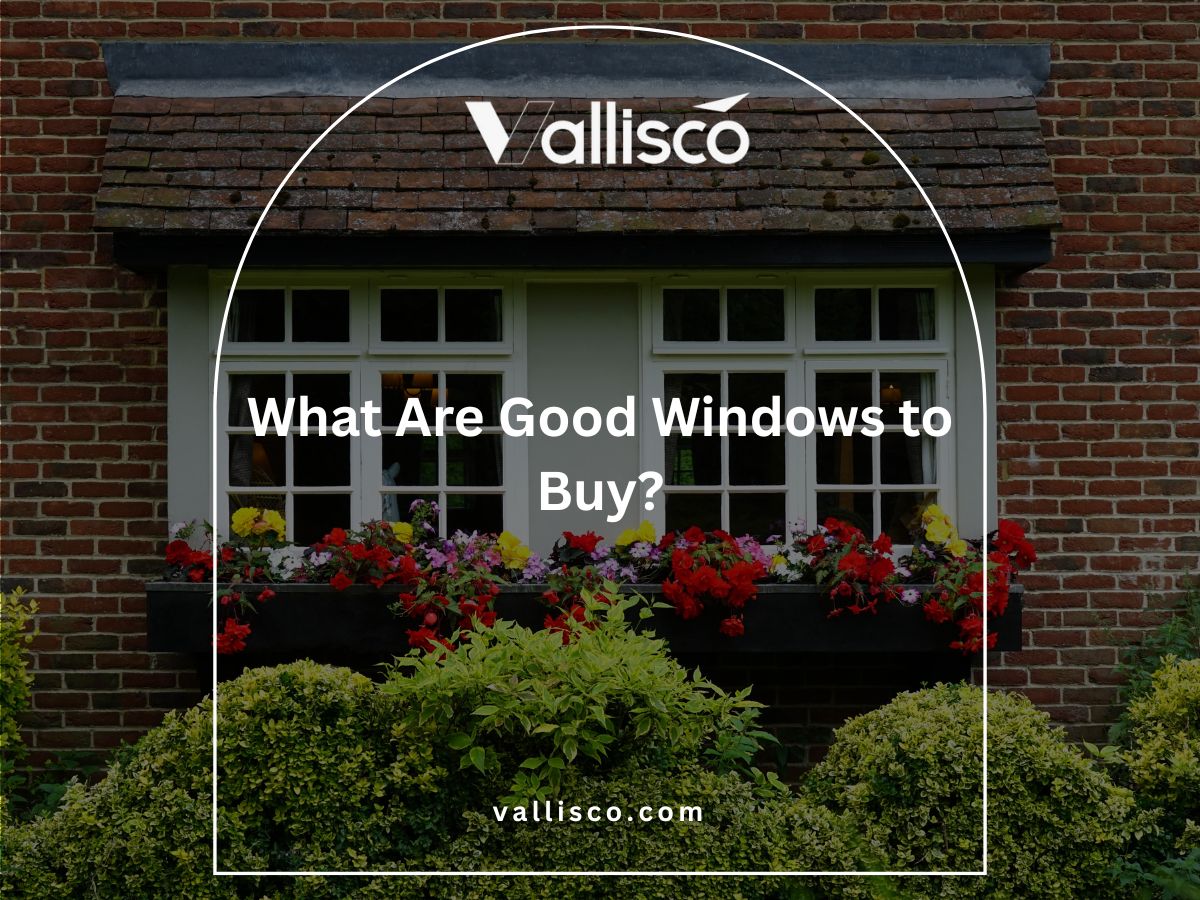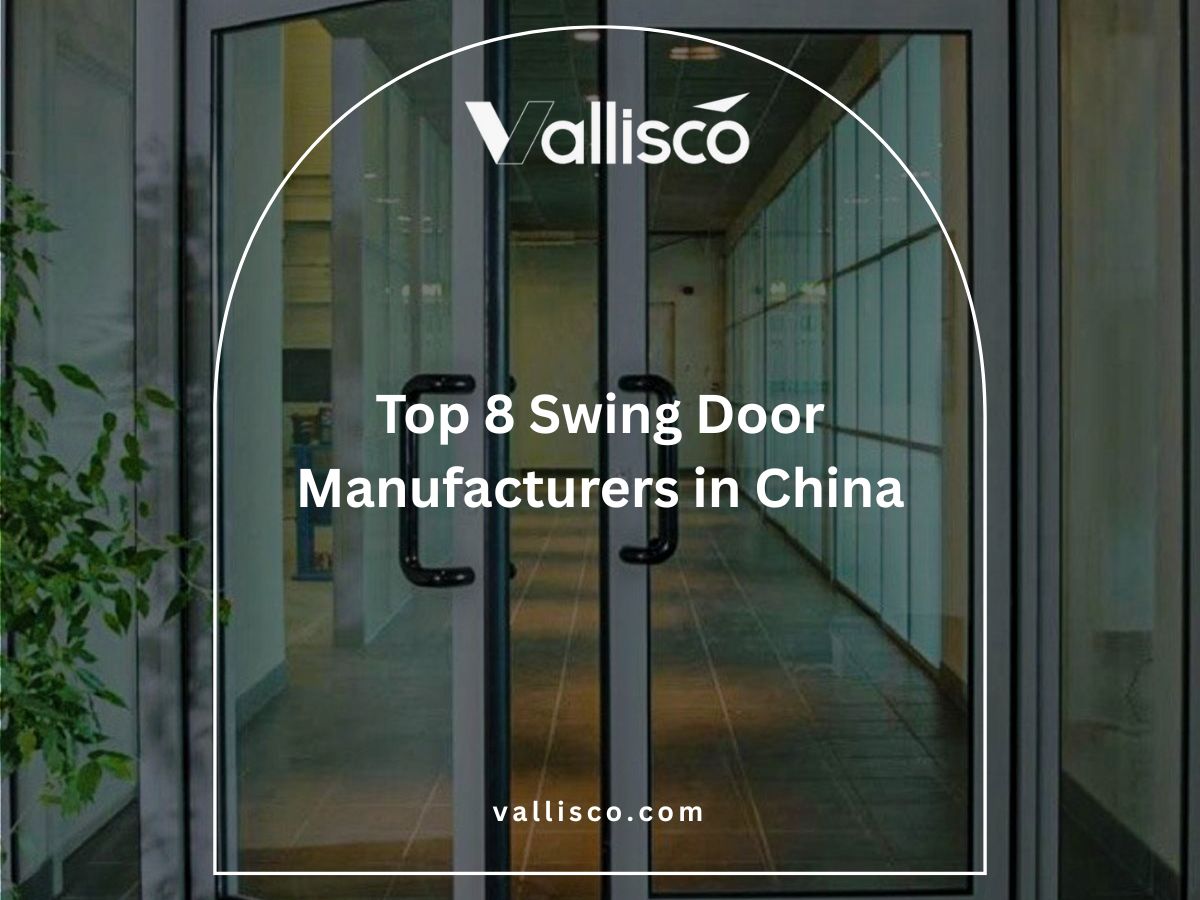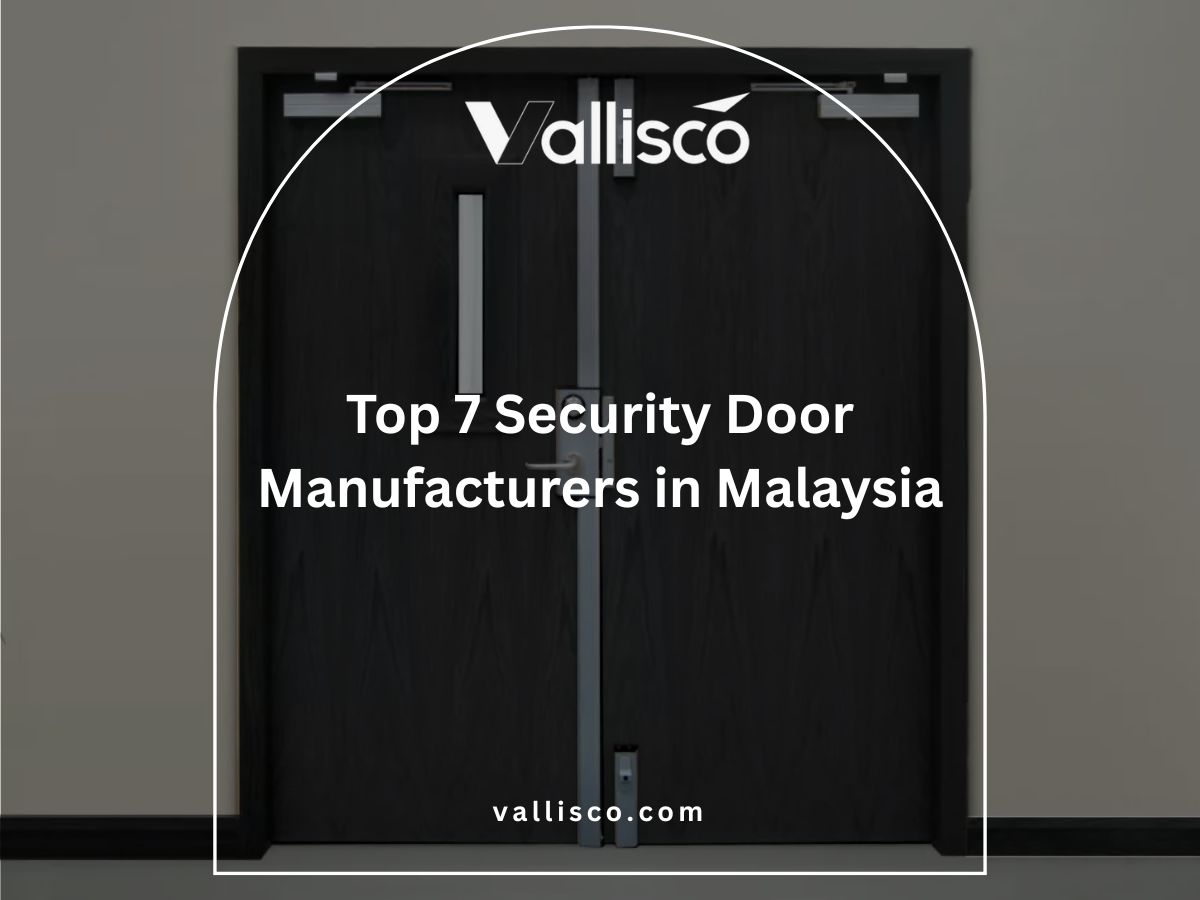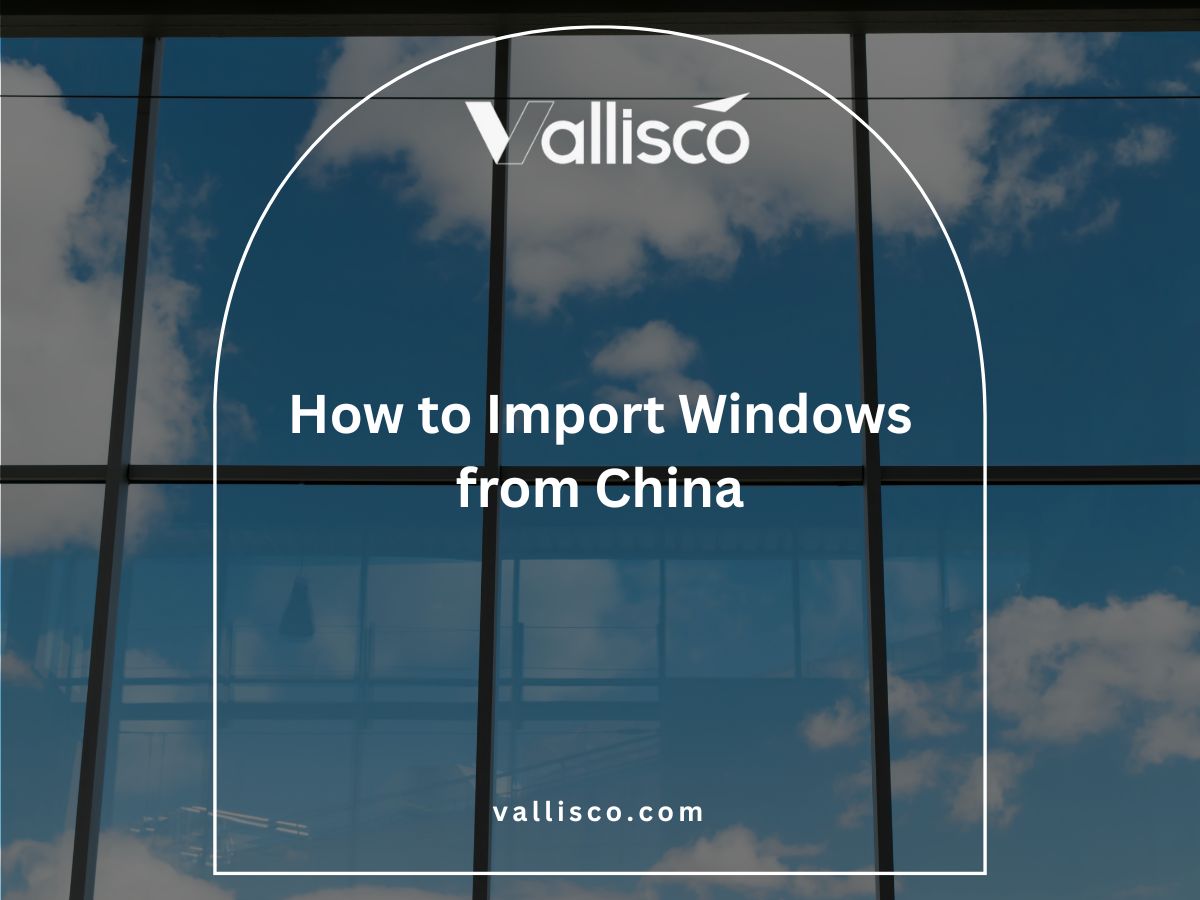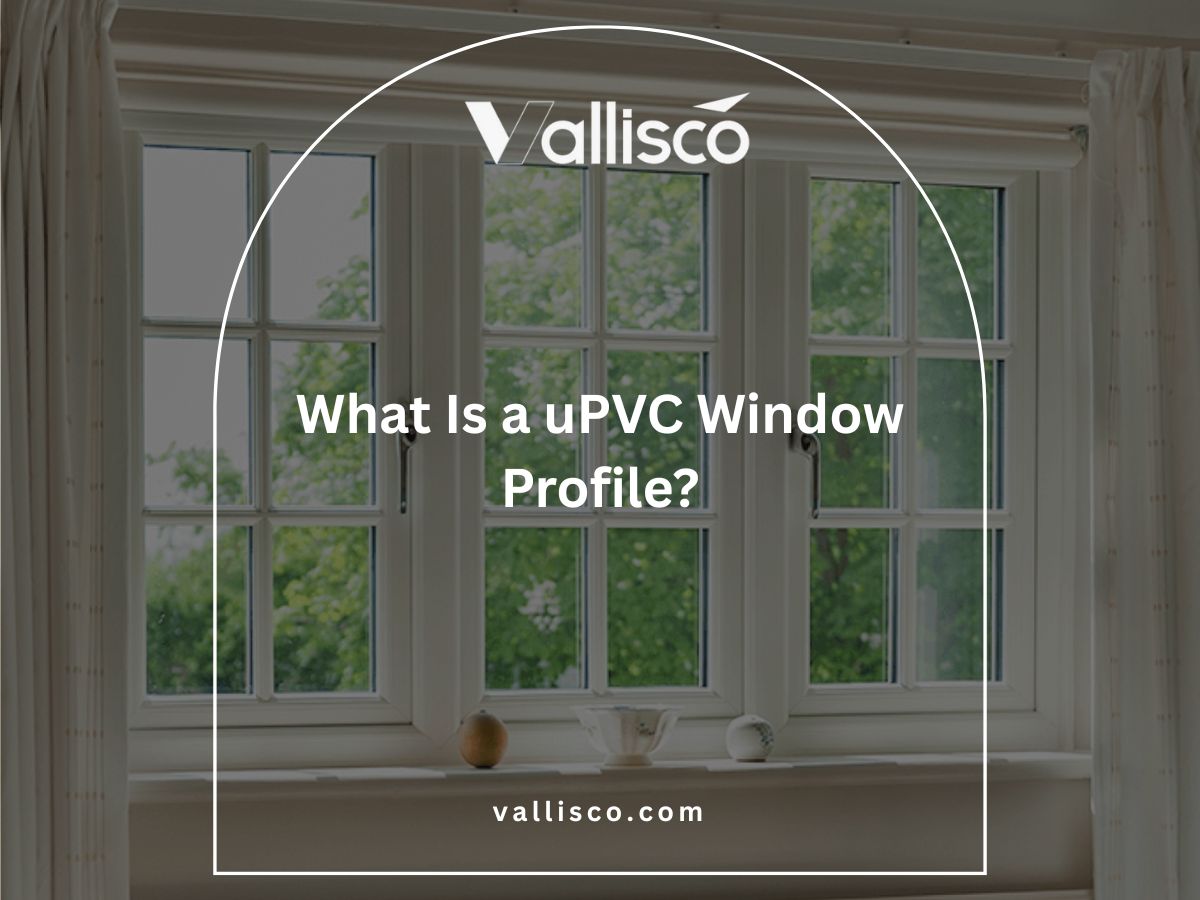I once consulted a villa owner who was frustrated with constant window maintenance. When they switched to vinyl, the change was immediate less cost, fewer headaches.
That experience pushed me to look deeper into how vinyl performs in larger commercial projects.
I’ve since gathered input from contractors, hotel owners, and suppliers who use these windows every day. Their feedback shaped the insights I’ll share with you.
This article will walk you through the pros, cons, and practical details of commercial vinyl windows. You’ll get the knowledge you need to make the right decision.
If you’ve ever wondered if vinyl is worth it for your property, you’re in the right place.
So, let’s get started!
1. What Are Commercial Vinyl Windows?
I first noticed vinyl windows in a hotel project, and they stood out from the smaller ones I had seen in homes. These windows are made from polyvinyl chloride, or PVC, a strong plastic also used in flooring and pipes. In window frames, PVC resists moisture, avoids rust, and helps keep rooms insulated. For commercial use, the frames are built thicker and reinforced to carry larger glass panels.
Residential vinyl windows work fine in homes, but commercial ones go further. They follow safety codes, last through heavy use, and give both comfort and efficiency. Owners see fewer upkeep costs, while engineers focus on strength, compliance, and thermal performance.
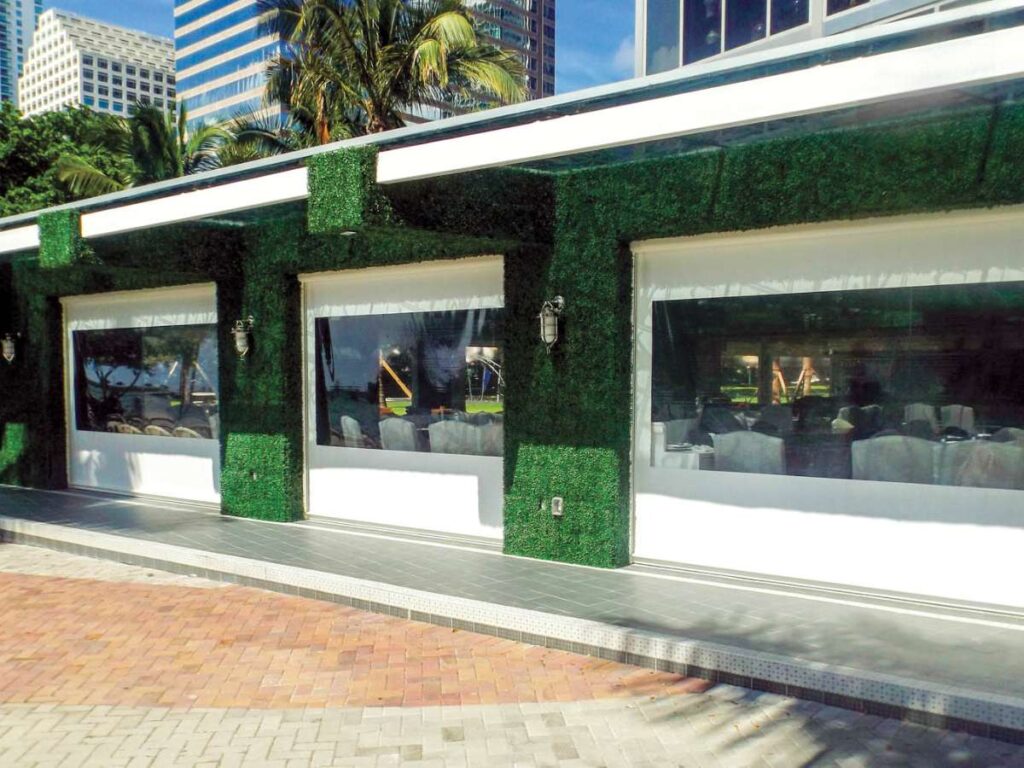
2. Benefits of Using Vinyl Windows in Commercial Buildings
I have seen many property owners struggle to balance comfort, cost, and design. Vinyl windows often come up as a solution because they offer real advantages for commercial projects. From keeping rooms warmer to lowering upkeep, these benefits can make a noticeable difference for you and your guests.
Energy performance
When I stayed at a villa fitted with vinyl windows, I noticed how steady the indoor temperature felt. Vinyl frames act as natural insulators, and when paired with double or triple glazing, they reduce heat loss even further. Engineers measure this using the U-value, which shows how well a window prevents heat from escaping. A lower U-value means better performance, and vinyl usually scores well.
Durability and maintenance
One reason commercial owners turn to vinyl is because it lasts. Unlike wood, it does not rot in damp conditions. Unlike aluminum, it does not rust or corrode. I once visited an inn where the vinyl windows had been in place for more than a decade, and the owners told me they never needed repainting. That kind of stability saves both time and money.
Noise control
Noise reduction is a major benefit for hotels, inns, or B&Bs near traffic or city centers. Vinyl frames, combined with thicker glazing, block much of the outside sound. A guesthouse owner once explained how guests noticed the difference right away after upgrading to vinyl. A quiet room makes for better reviews and repeat business.
Cost savings
Vinyl offers a reasonable upfront price compared to other materials, but the long-term savings are where it shines. Lower maintenance and reduced energy costs add up month after month. For property owners, this return on investment makes vinyl appealing for both small and large buildings.
Design options
Vinyl windows are available in many colors and finishes. You can choose a modern style for a glass façade or a classic look for a villa. Engineers like the consistent performance, while owners enjoy having choices that fit their building’s character.
3. Types of Commercial Vinyl Windows
The type of vinyl window you choose will depend on how the space is used and the look you want to achieve. I have walked through villas, hotels, and even greenhouses where different styles made all the difference. Some windows focus on bringing in light, while others are chosen for airflow or saving space. Let’s go through the main types.
Fixed windows
Fixed windows do not open and are mainly installed to allow light and create clear views. They provide strong insulation and are often used in greenhouses and villas where natural brightness is important. The main advantage is energy efficiency, but the limitation is the lack of ventilation.
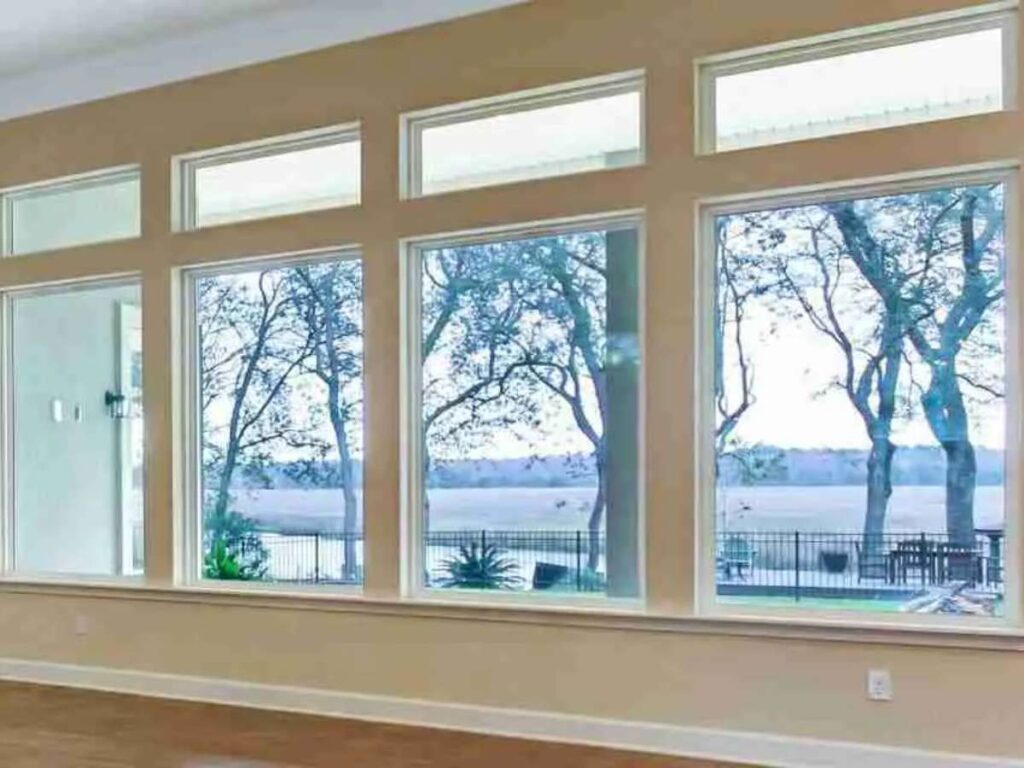
Sliding windows
Sliding windows open horizontally and are suited for spaces where saving room is necessary. They are common in hotels and apartment-style buildings because they provide adequate ventilation without requiring outward clearance. The main strength is convenience and space efficiency, though they may not seal as tightly as other window types.
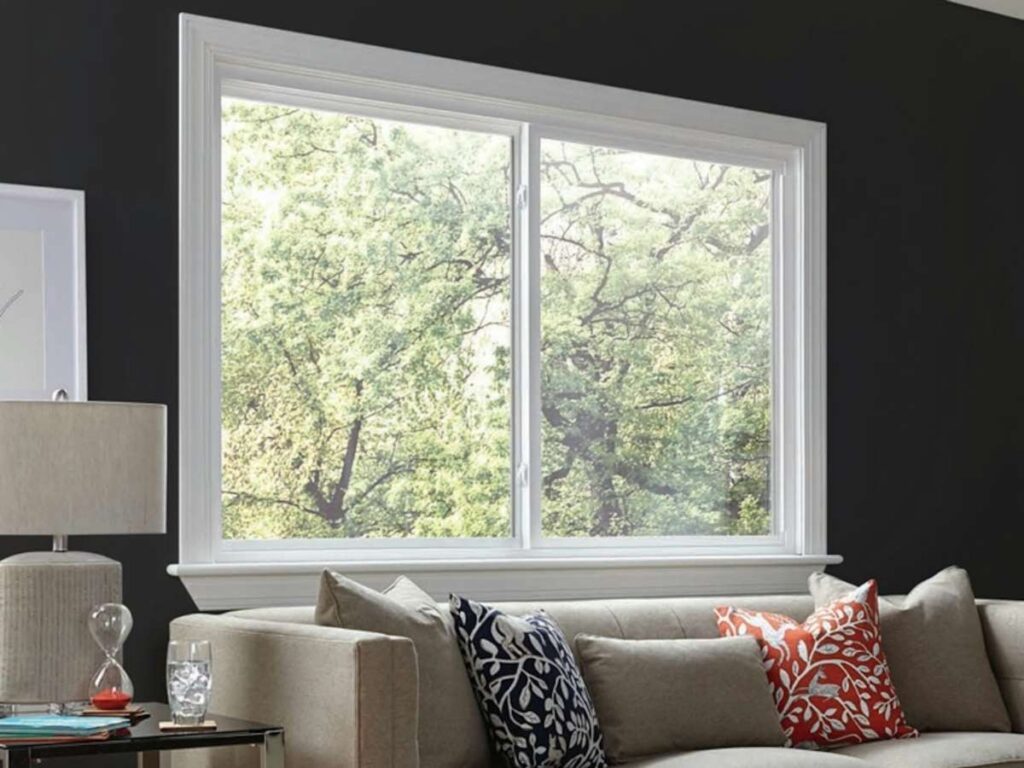
Casement and awning windows
Casement windows are hinged on the side and open outward, while awning windows are hinged at the top and swing open from the bottom. These designs provide strong ventilation and a modern appearance. Their advantage is reliable airflow even during light rain, but the hardware may require more upkeep than simpler options.
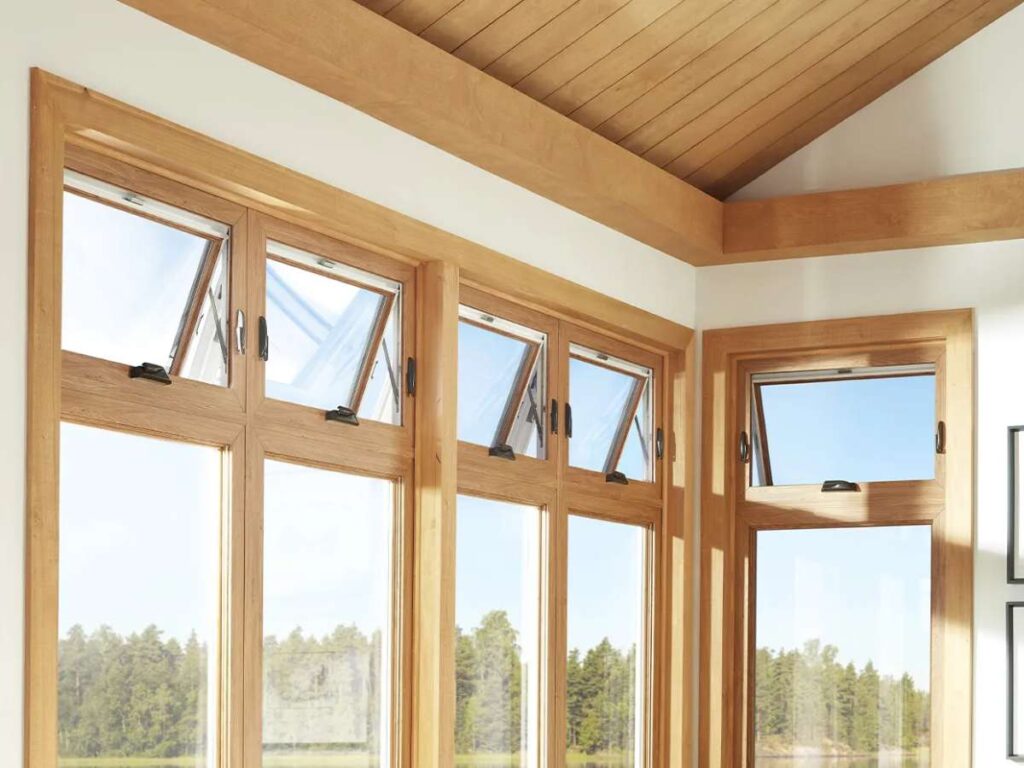
Double-hung windows
Double-hung windows open vertically, allowing movement from both the top and bottom sash. This style is traditional and often used in inns or B&Bs where a classic look is desired. The benefit is versatile airflow, but they are generally less airtight than fixed or casement windows.
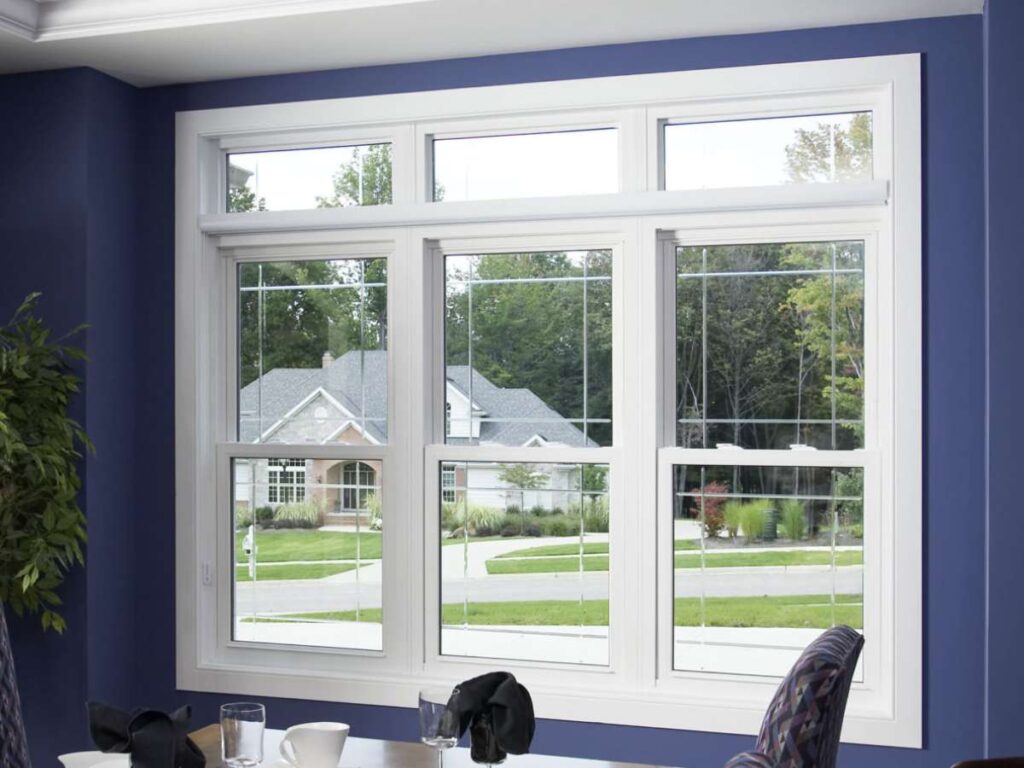
4. Performance Ratings and Certifications
When planning a commercial project, window performance is just as important as design. Certifications and ratings give you clear benchmarks for safety, efficiency, and durability. I have seen projects move forward smoothly when teams treated these as a checklist instead of an afterthought.
Energy Star and NFRC Ratings
- Energy Star Label: This mark means the window meets strict energy-saving requirements. It helps property owners cut utility costs while improving comfort.
- NFRC Ratings: The National Fenestration Rating Council provides numbers like U-value for insulation and Solar Heat Gain Coefficient for sunlight control. These figures let you compare products without relying on marketing claims.
Wind and Impact Resistance
- Impact Testing: Windows for coastal villas or hotels must pass tests for high winds and debris. Certified ratings prove they can withstand severe storms without failure.
- Pressure Resistance: Engineering teams need to check pressure ratings for tall buildings or exposed sites. This step helps projects comply with local building codes.
Fire Safety Standards
- Flame Spread: Windows are tested for how quickly flames travel across their surface. Passing this rating is essential for commercial buildings with high occupancy.
- Smoke Development: Certified ratings also measure how much smoke a window material produces in fire conditions. Compliance protects both guests and property owners from risk.
By using these certifications as a checklist, you lower the chance of costly delays or compliance issues later. A vinyl window with the right ratings does more than offer efficiency: it provides safety, durability, and long-term reliability for your project.
5. Common Applications in Commercial Settings
I have seen vinyl windows used in many different kinds of commercial projects, and each setting highlights a different advantage. From guest comfort to energy savings, the way they perform often depends on the property type.
Hotels and Inns
Hotels and inns rely on windows to create comfort for guests. Vinyl windows with double glazing make rooms quieter by blocking traffic noise, which is something I noticed firsthand during a stay near a busy street. They also keep indoor temperatures more stable, which lowers energy bills for owners and improves the overall guest experience.
Villas and Houses
In villas and larger homes, owners often want a balance between design and function. I once visited a villa where vinyl windows blended so seamlessly with the exterior that they looked like they were part of the original architecture. What stood out most was how little maintenance was needed compared to traditional wood frames.
Greenhouses
Greenhouses are another place where vinyl windows shine. Their ability to let in natural light while holding steady temperatures supports plant growth. I’ve seen growers switch to vinyl frames to save on heating costs during winter, and the difference was clear in both energy savings and healthier plants.
Bed and Breakfasts
B&Bs usually work within smaller budgets, but they still need inviting spaces for guests. Vinyl windows meet both needs by being affordable and visually appealing. I remember speaking with a B&B owner who chose vinyl because it kept costs low without sacrificing charm, and their guests complimented the brighter, cleaner look.
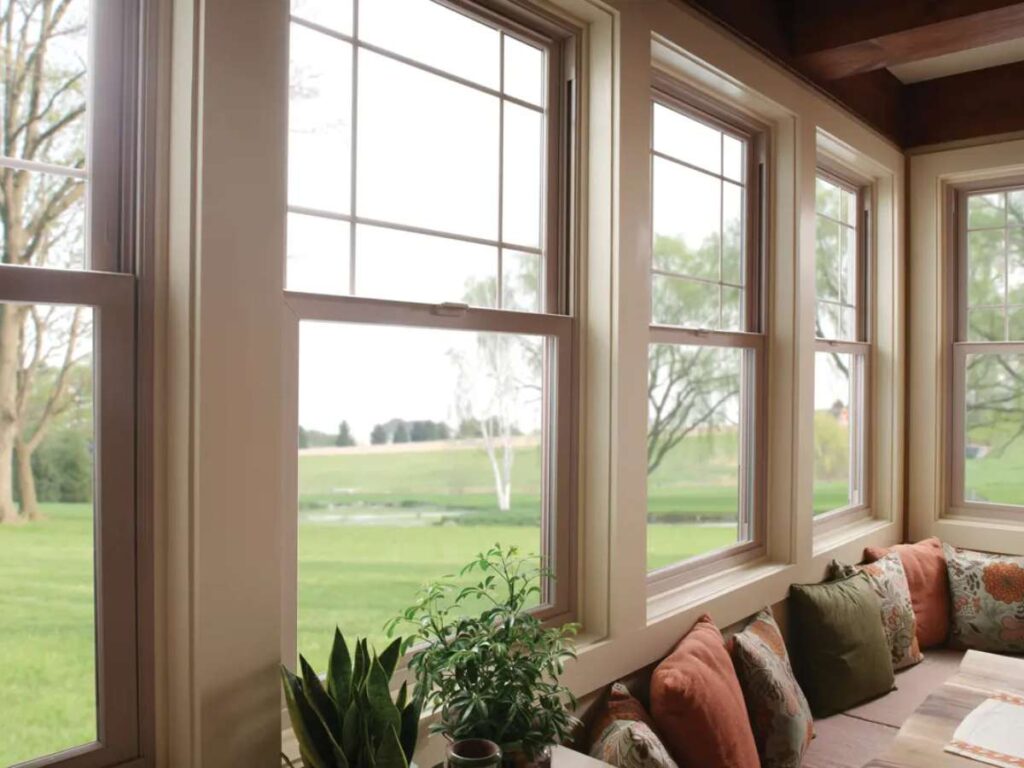
6. Vinyl vs. Aluminum vs. Other Window Materials
When deciding on windows for a commercial project, the choice often comes down to vinyl, aluminum, wood, or fiberglass. Each material has its own strengths and trade-offs. The table below gives you a clear comparison.
| Feature | Vinyl Windows | Aluminum Windows | Wood Windows | Fiberglass Windows |
| Cost | Lower upfront cost | Moderate to high | High | High |
| Maintenance | Very low: no painting needed | Low, but can scratch | High: needs painting or sealing | Low, but limited supply |
| Insulation | Good: multi-chambered frame | Poor unless thermal break is added | Very good | Excellent thermal performance |
| Durability | Strong for most climates | Very strong, handles harsh weather | Can rot or warp if not maintained | Very strong, stable in temperature |
| Appearance | Modern and clean | Sleek, common in commercial façades | Warm, classic, high-end look | Neutral, smooth, paintable surface |
| Noise Reduction | Good with proper glazing | Moderate | Very good | Good to very good |
| Lifespan | 15–25 years | 20–30 years | 20–30 years if cared for | 30–40 years |
| Not Ideal For | Very tall structures, harsh storms | Projects needing top insulation | Low-maintenance or budget projects | Budget-sensitive or small projects |
| Best For | Villas, B&Bs, greenhouses | Tall buildings, storm-prone areas | Luxury homes, heritage properties | Extreme climates, high-performance builds |
From my experience, vinyl tends to be the practical choice for most villas, hotels, and B&Bs. Aluminum remains popular in tall buildings where strength is critical. Wood offers unmatched style but requires more care. Fiberglass is strong and efficient, though the higher price and limited availability make it less common in many projects.
7. Installation Tips for Commercial Projects
The performance of vinyl windows depends heavily on how they are installed. I have seen projects where the right window was chosen but problems appeared later because of poor planning or rushed work. Taking the time to prepare and work with experienced teams can save you costly repairs.
Pre-Installation Planning
- Accurate Measurement: Measure openings carefully to avoid gaps that weaken insulation. Even small errors can lead to drafts and water leaks.
- Load Calculation: Commercial buildings often have larger spans that require stronger support. Calculating load capacity helps prevent frame warping or glass failure.
- Frame Thickness: Choose a frame thickness designed for commercial use, not residential. Thicker frames support heavier glazing and perform better under pressure.
Professional vs. DIY
- Skilled Teams: In hotels, villas, or B&Bs, professional installers bring the tools and knowledge to handle large projects. Their training reduces the risk of mistakes.
- DIY Risks: Doing it yourself might look cheaper, but poor alignment or sealing can cause long-term damage. I once visited a small property where water seeped in because the owners tried to handle installation themselves. Fixing it later cost far more than hiring professionals in the first place.
Sealing and Insulation During Install
- Air Leaks: Proper sealing prevents heat from escaping and stops drafts from entering guest rooms. Missing this step makes even the best window perform poorly.
- Water Protection: Sealing also protects against water damage around the frame. Moisture can weaken walls and cause mold if ignored.
- Insulation: Adding the right insulation around the frame improves thermal performance. This helps maintain indoor comfort and lowers energy bills over time.
Good installation practices give commercial vinyl windows the chance to perform as promised. With proper planning, skilled professionals, and careful sealing, your investment lasts longer and delivers better results. Manufacturers like Vallisco often work closely with project teams during installation, which helps property owners get the full value out of their windows.
8. Mistakes to Avoid When Choosing Vinyl Windows
Selecting vinyl windows for a commercial project can feel straightforward, but I’ve seen how easy it is to overlook key details. The wrong choice can lead to higher costs, unhappy guests, or extra maintenance. Keeping an eye on common mistakes can save you time and frustration.
- Focusing Only on Price: It’s tempting to pick the cheapest option, especially for large projects. Yet low-cost windows may have poor insulation, which means higher energy bills and replacements sooner than expected.
- Ignoring Performance Ratings: Certifications such as Energy Star or NFRC show how well a window insulates and manages heat. Skipping these checks often results in properties that cost more to run. I once reviewed a project where ignoring ratings led to uncomfortable guest rooms during winter.
- Not Considering Local Climate: A window that works fine in mild weather may fail in coastal, high-wind, or humid areas. Checking climate suitability avoids problems like warping, leaks, or early wear.
- Overlooking Glass Options: Glazing refers to how many glass layers a window has. Choosing single-pane glass over double or triple glazing weakens efficiency and reduces comfort. Hotels or villas that rely on guest satisfaction lose out here.
- Choosing the Wrong Style for the Building: Style matters for both appearance and function. Sliding windows can clash with a traditional villa, while fixed windows may not provide enough ventilation for a greenhouse. Matching style to building use avoids awkward results.
- Neglecting Warranty and After-Sales Service: Warranties and service contracts protect you when problems come up later. Without them, owners face high repair costs. Strong support gives confidence that issues will be addressed quickly.
By avoiding these mistakes, you protect your investment and achieve better long-term results. Working with trusted suppliers like Vallisco can also make the process easier since they guide you through ratings, styles, and after-sales support.
9. How to Choose a Reliable Vinyl Window Supplier
Choosing a supplier is more than just comparing prices. The right partner can guide you through design, certification, and installation, while the wrong one can leave you dealing with delays and hidden costs. I have seen both outcomes, and the difference always comes down to the reliability of the supplier.
Check Experience and Portfolio
The first step is to look at how much experience a supplier has with commercial projects. A company that has supplied windows for hotels, villas, or large residential developments understands the scale and challenges involved. Reviewing their portfolio gives you proof of what they can deliver rather than relying on claims.
Certifications and Compliance
A reliable supplier will provide certifications such as ISO, Energy Star, and NFRC. These show that the products meet standards for energy performance and safety. Local building codes must also be considered because non-compliant windows can cause costly setbacks later in the project.
Customization and After-Sales Support
Commercial properties often need large-scale orders or custom designs, and the supplier should be able to deliver without lowering quality. After-sales service matters just as much as the initial sale. Strong warranties and clear replacement policies protect your investment, while responsive support keeps your project running smoothly.
Questions to Ask Before Buying
Before making a decision, ask direct questions. How long will delivery take? Does the supplier provide installation support or at least guidance? Which certifications back the products they sell? Answers to these questions can reveal whether the supplier is dependable or risky to work with.
Conclusion
We’ve covered everything from benefits to common mistakes, all with one goal: helping you choose vinyl windows that work for your project. Whether it’s a villa, a hotel, or a greenhouse, the lessons remain the same.
You now know the what, the why, and the how. The question is, when will you take action?
I’ve seen owners wait too long and pay the price. You don’t have to be one of them.
So what’s stopping you? Contact Vallisco today and let’s find the right windows for your property.
Explore Related Resources
Want to see more? We’ve gathered additional product choices to give you even more variety:
Still haven’t found what you’re looking for? Don’t hesitate to contact us. We’re available around the clock to assist you.


